How To Organize A Golf Bag
We dissect how to organize a golf bag so you have fewer distractions when out on the course.

Dan Parker
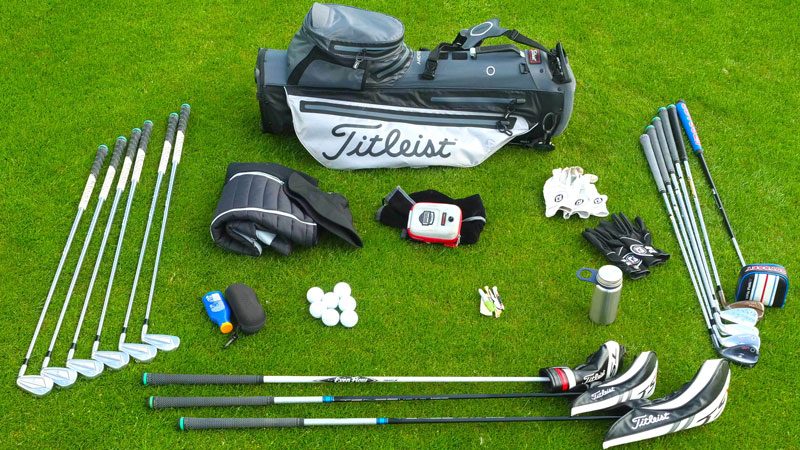
Subscribe to the Golf Monthly newsletter to stay up to date with all the latest tour news, equipment news, reviews, head-to-heads and buyer’s guides from our team of experienced experts.
You are now subscribed
Your newsletter sign-up was successful
Want to add more newsletters?

Delivered daily
Daily Newsletter
Sign up for all the latest tour news, gear reviews, head-to-heads and buyer’s guides plus features, tips from our top 50 coaches and rules advice from our expert team.

Once a week
Kick Point
Sign up to our free Kick Point newsletter, filled with the latest gear reviews and expert advice as well as the best deals we spot each week.

Once a week
Women's Golf Edit
Sign up to our free newsletter, filled with news, features, tips and best buys surrounding the world of women’s golf. If you’re a female golfer, you won’t want to miss out!
How To Organize A Golf Bag
How many people do you know with a golf bag that resembles a scrap metal dealer’s yard from the outside and a teenager’s bedroom on the inside? Playing good golf requires a clear and uncluttered mind – everything needs to be in the right place mentally if you’re to keep it together for 18 holes. Whether you favor a stand bag or a cart bag, a good starting point is to have your bag organized in such a way that you know exactly where everything is, and in easily accessible locations.
VIDEO: Neil Tappin talks through the ideal golf bag organisation.
If you’re facing a challenging shot from a fairway bunker as a squall rolls in, the last thing you need is to be wrestling to free your 9-iron from a seemingly unbreakable tryst with a 3-wood whilst delving into every pocket to try and locate your rain jacket.
There are personal preferences in certain elements of bag organization, but below we give the Golf Monthly consensus on the best way to organize a golf bag… It’s a final thesis that’s been produced after lengthy debate, research, lobbying and mathematical calculation. Not all of the team will be in full agreement with the final proposal as anecdotal evidence will allude to… but they’ll just have to put up with it. Also, make sure you check out our guide on the best golf bags currently on the market too. Who knows, maybe it is time for an upgrade?
How to arrange golf clubs
Let’s start with the fundamental purpose of a golf bag; to hold your clubs. Yes, for most, the bag contains far more than just the spanners. In fact, for many, it’s the crucible of their full golfing lives.
But, it’s important for the well-organized golf bag to remember its heritage. It began life merely as a contrivance to assist beleaguered caddies struggling to juggle a selection of spoons, niblicks, and mashies like a bundle of slippery saplings. The modern bag will offer a range of top cuffs to facilitate club organization – from the 14-way with full-length dividers to the 4 or 5-way Tour Bag style top. The video with this article shows how to arrange your clubs if you have a 4-way divider. Whatever design you have, one thing should remain constant – the longest clubs should sit nearest to the longest section of the bag (its spine) moving downwards to the shorter clubs.
Subscribe to the Golf Monthly newsletter to stay up to date with all the latest tour news, equipment news, reviews, head-to-heads and buyer’s guides from our team of experienced experts.
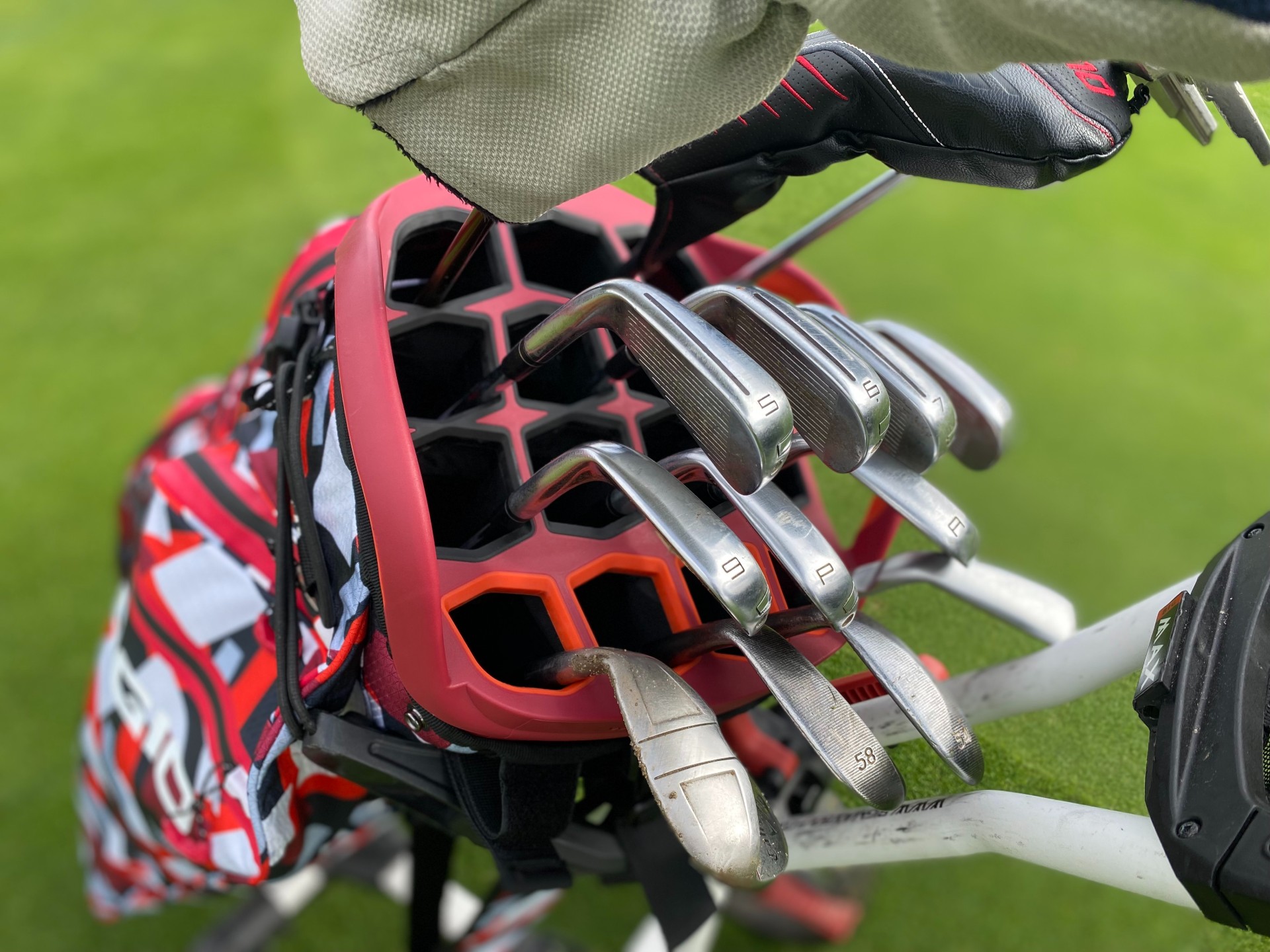
Dividers come in different shapes and sizes depending on the brand.
One member of the Golf Monthly team who will remain nameless, is adamant that the opposite should be the case. His crackpot method is explained by the rationale that organizing in that way will allow you to see all the clubs more easily. He also contests that his method reduce club clattering and rattling.
In the Golf Monthly court, his case was dismissed as the ramblings of a mad man. If your woods are at the bottom of the bag, not only do the shafts receive less protection from the bag (as they’re sticking out further) but they also receive the full brunt of iron weight above them. No – it simply must be woods up top, going down to wedges at the bottom.
In a classic 4-way top bag the ideal split will be: Two woods and a hybrid (or long iron) in the top, three irons middle right, three irons middle left and four short irons in the wide bottom. Slightly contentious is the putter as this rebel goes against the grain in our blueprint for perfect golf bag Feng Shui.
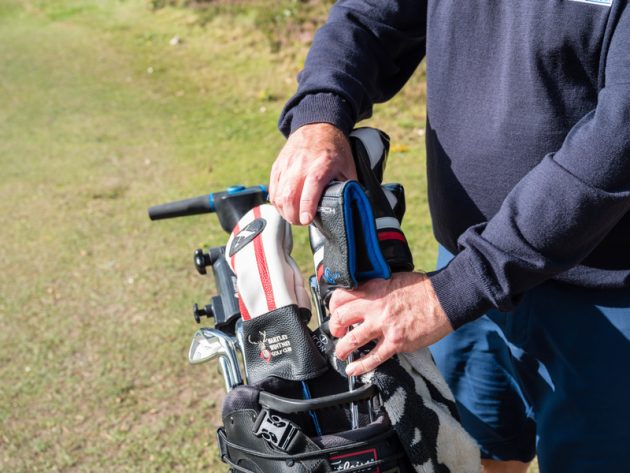
Although it’s, generally, the shortest club in the bag, the putter must reside up top with the woods and longer clubs. It’s an important stick and it knows it, so it likes to reside with the big boys and girls. It also gets used an awful lot, so you need to get your hands on it easily.
If you’re lucky enough to have an oversized putter well, you’ll almost always find that up top – providing strong support to our philosophy. Finally, be sure to throw a couple of alignment sticks in by your woods to make it look like you know what you’re doing.
Apparel
Almost all golf bags, whether cart, carry or tour have (at least one) full-length apparel pocket. We can’t stress this enough, but these pockets should be reserved purely for that designated cargo.
A friend of Golf Monthly tells a distressing tale of re-finding his old St Andrews University golf bag (a classic Ping L8 Stand Bag) in his loft and thinking of putting it back into action for a little nostalgia. Things were going well until he opened the apparel pocket to be confronted by a horrendous splurge of matter in its base. He couldn’t decide if it had once been a banana or a Fruit and Nut Dairy Milk.
The bag had to be consigned to the dustbin of golfing history. Never be tempted to throw other items into the apparel pocket – not tees, not pitch forks, not gloves… nothing. If you do, those items are as good as dead.

Carrying a waterproof jacket is a must in the winter months.
They’ll either work themselves into the mysterious innards of the bag, or will be lost overboard, cast out as a pair of waterproof trousers are ripped from the pouch following a dramatic change in conditions. Apparel pockets reject all but apparel.
They also prefer the apparel to be nicely folded. Waterproofs stuffed in with sweaters and bobble hats have a tendency to turn aggressive and attach themselves in a vice-like Velcro grip that causes frustration and unattractive bobbling. A cursory fold will not only prevent this, allowing easy apparel retrieval, but it will also free up more space to squeeze more clothing in if required. If you have enough available space, a different pocket for headwear is a good idea: Caps and beanies do well in their own environment (somewhere they won’t come into contact with grubby or soggy waterproofs.) If you play in often changeable conditions, investing in one of the best waterproof golf bags is essential.
Balls

We recommend carrying no more than 10 golf balls at once to save weight and space.
If the bag allows it (ie. there are sufficient pockets) balls should have their own space. It keeps them calm to be with their own kind and it allows you to easily see what you have available, and to manage their numbers effectively. You don’t want to be carrying around enough balls to put on an impromptu trick-shot display, nor do you want to be down to your last Titleist with four holes to play in the club strokeplay. Try to keep a sensible supply of balls that you will be happy to use. We suggest 10.
Accessories
How you organize your accessories will depend on how many pockets are available. On a pocket-heavy cart bag, there will generally be sufficient different pockets to divide accessories. Gloves might have their own space, ideally in a waterproof or well-protected pocket to prevent them from getting damp. There’s nothing more annoying than a brand-new Cabretta leather glove ruined by a soaking. Tees, markers, and pitchforks live well together as do writing implements: pencils and marker pens. Some bags will have a nice marker pen sheath – make use of it if yours does, it would be rude not to.
You might keep a rangefinder in a designated pocket, and you might also have other sundry accessories (that may occasionally be required) that could live separately – Perhaps interchangeable weights, a spike key, shaft changing key or similar. Essentials to carry (again separately if possible) are replacements – particularly a battery for your range finder and cleats for your shoes (if you have them).
Valuables
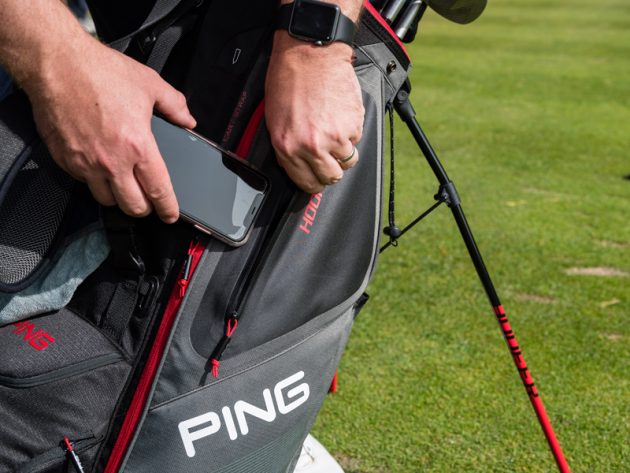
Most valuables pockets on golf bags are fully waterproof.
Most modern bags come with a specific valuables pocket and many are luxuriously lined with velour or ermine. Many are also waterproof to keep your wallet and phone dry… Look out for one of those if you’re in the market for a new bag as it could come in very handy. Basically though – keep your wallet, phone, car keys, watch and any other jewellery together in the same valuables pocket and, with a bit of luck, you won’t lose any of it.
Sustenance
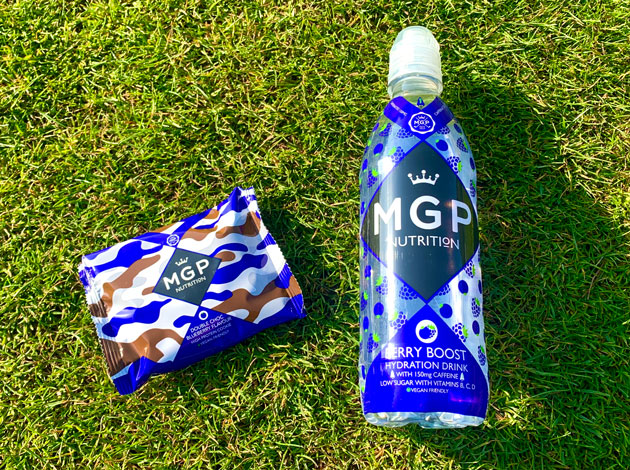
As described above, leaving food in the deepest darkest corners of your golf bag is not a good idea… You could end up creating new life forms in your ball pocket. To organize your golf bag, if taking consumable solids with you – try to make sure they’re at the top of the pile (ideally in an insulated pocket). That will also help if the temperature goes up – preventing your Mars bar turning into a hot Mars milk. Most bags now have a water bottle holder but, if you don’t – make sure you screw the lid on tightly. Nobody wants a leaky bottle of Irn Bru in with their cashmere slip over…
Outer items
Be sure to attach a (regularly cleaned) towel to one of the available clips on the bag. You’ll need that to wipe away any indiscretions quickly and discreetly. If you prefer to have it readily available, you might also clip your laser rangefinder, GPS, or distance measuring device to the clip as well.
Make use of all available clips to display your badges of honor – perhaps a membership tag from your club, perhaps a bag-tag from a well-known championship venue to show how well travelled you are. Finally, when it comes to how to organize a golf bag, don’t forget an umbrella. There should always be at least one loop to take a full-size windproof model.
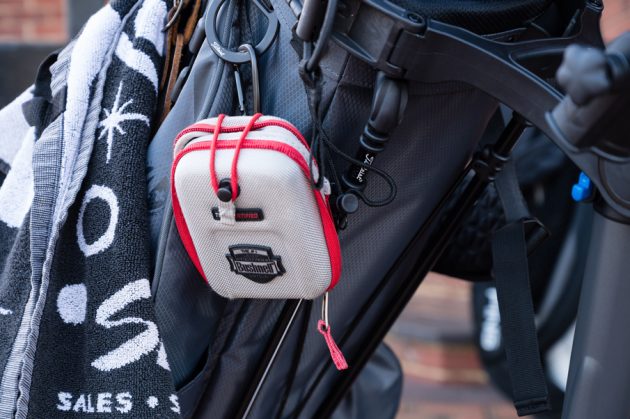
If you’re taking a cart and your bag has two umbrella loops, why not take two? It’s difficult to know why you might need two, but hey… the rule of thumb is, if you’re not carrying and you have the space (as long as well organized), throw it in! Hopefully that gives you all you need on how to organize a golf bag and next time you play you’ll be perfectly prepared to play to peak potential.

Fergus is Golf Monthly's resident expert on the history of the game and has written extensively on that subject. He has also worked with Golf Monthly to produce a podcast series. Called 18 Majors: The Golf History Show it offers new and in-depth perspectives on some of the most important moments in golf's long history. You can find all the details about it here.
He is a golf obsessive and 1-handicapper. Growing up in the North East of Scotland, golf runs through his veins and his passion for the sport was bolstered during his time at St Andrews university studying history. He went on to earn a post graduate diploma from the London School of Journalism. Fergus has worked for Golf Monthly since 2004 and has written two books on the game; "Great Golf Debates" together with Jezz Ellwood of Golf Monthly and the history section of "The Ultimate Golf Book" together with Neil Tappin , also of Golf Monthly.
Fergus once shanked a ball from just over Granny Clark's Wynd on the 18th of the Old Course that struck the St Andrews Golf Club and rebounded into the Valley of Sin, from where he saved par. Who says there's no golfing god?
- Dan ParkerStaff Writer